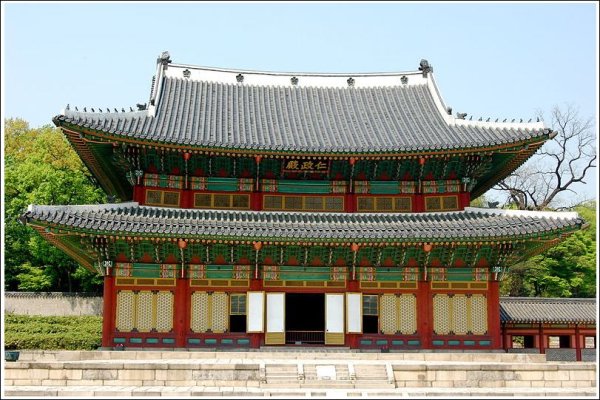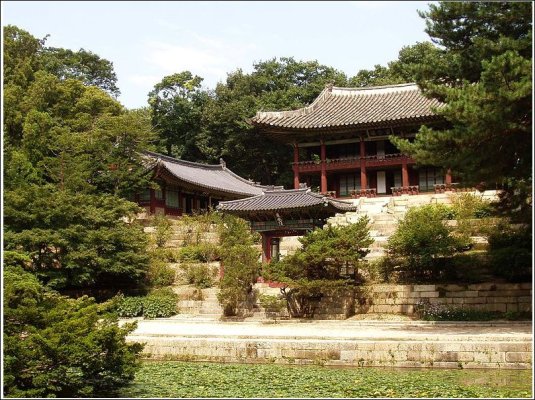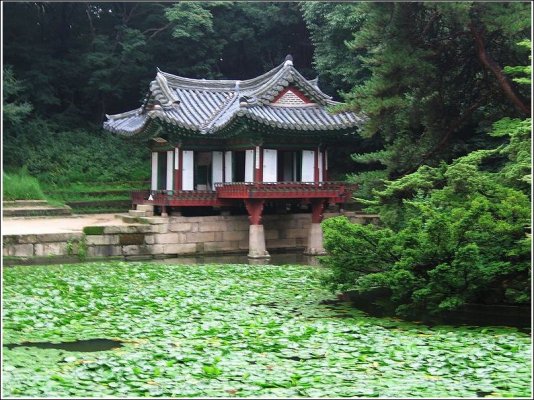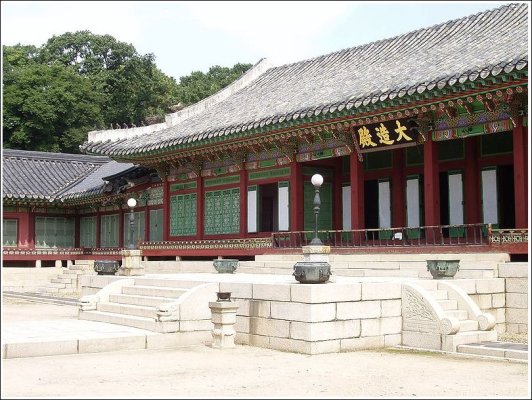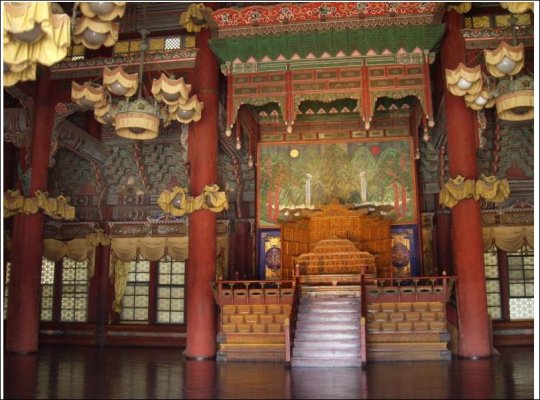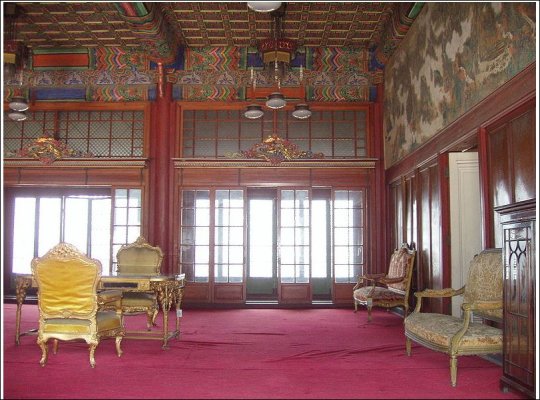Kurenai
Commoner
- Joined
- Mar 29, 2007
- Messages
- 20
- City
- Oakville
- Country
- Canada
I never thought there would be a post on Korean monarchy here!
As Korean, I don't believe the monarchy will be restored any time soon. When the Japanese took over, all trust in the Korean monarchy was destroyed -- how can one respect a parent who failed to protect his children (i.e., the people)?
But as far as I know, The Yi Royal family remained the wealthiest clan in the Korean peninsula until the Korean liberation/independence from the Japanese in 1945. That year was the turning point where the Yi family went downhill in respect and wealth. There are several reasons to this:
1) the Korean war -- this war screwed everybody up, so to speak. Everybody had to abandon their homes and flee south. Although I am not certain how the royal family survived the war, there is no doubt in my mind that the Korean war perished most of their belongings and other sources of wealth.
For example, my maternal grandmother was a woman of aristocratic birth (her mother, my great-grandmother whom I adored as a child, was a member of the minor branch of the Yi Royal family). Her grandfather served as an ambassador to China and growing up she had luxuries only other women her age could dream of such as a record player, violin, cello, etc. However, under the Japanese rule she left her home town and came to Seoul to work as a secretary to earn a living. And during the Korean war she had to work at a beauty parlor to make ends meet (my grandfather was only an interpreting officer with the Korean army at the time).
What I'm saying is that in times of war, nobody is immune to poverty, not even the Yi family.
2) When the Republic of Korea was established in 1945 (and it technically DID exist throughout the Korean war), the first president to be elected made it his personal mission to "snuff out" the royal family. This is ironic in a sense, because President Yi was also a descendant of the royal family.
But President Yi considered himself as a patriot, a fighter of the Japanese. And indeed he spent years in Hawaii working hard to gain Korea its rightful independence from Japanese rule prior to 1945. He blamed the Japanese invasion of Korea on the Yi Royal family, and as soon as he became president he took steps to take away the vast wealth of the Yi Royal family. As far as he was concerned, these people were criminals and did not deserve to continue live in the lap of luxury. He took away their land, then the palaces, kicking them out to fend for themselves. Several remained in Korea, living in poverty. The younger ones either immigrated to America or went to live in Japan.
Even today your royal family "connections" are nothing to brag about. People try not to say it, for it is frowned upon still.
But I've got some hilarious stories about my great-grandmother though -- for one thing, she REFUSED to pick up the phone. You know why? Because 1) the person on the other line is probably of a lower status than she is and therefore, she didn't want to speak politely to the person (Korean etiquette dictates that you must speak politely to a stranger over the phone) and 2) she has not been properly introduced to the person she's talking to!
As Korean, I don't believe the monarchy will be restored any time soon. When the Japanese took over, all trust in the Korean monarchy was destroyed -- how can one respect a parent who failed to protect his children (i.e., the people)?
But as far as I know, The Yi Royal family remained the wealthiest clan in the Korean peninsula until the Korean liberation/independence from the Japanese in 1945. That year was the turning point where the Yi family went downhill in respect and wealth. There are several reasons to this:
1) the Korean war -- this war screwed everybody up, so to speak. Everybody had to abandon their homes and flee south. Although I am not certain how the royal family survived the war, there is no doubt in my mind that the Korean war perished most of their belongings and other sources of wealth.
For example, my maternal grandmother was a woman of aristocratic birth (her mother, my great-grandmother whom I adored as a child, was a member of the minor branch of the Yi Royal family). Her grandfather served as an ambassador to China and growing up she had luxuries only other women her age could dream of such as a record player, violin, cello, etc. However, under the Japanese rule she left her home town and came to Seoul to work as a secretary to earn a living. And during the Korean war she had to work at a beauty parlor to make ends meet (my grandfather was only an interpreting officer with the Korean army at the time).
What I'm saying is that in times of war, nobody is immune to poverty, not even the Yi family.
2) When the Republic of Korea was established in 1945 (and it technically DID exist throughout the Korean war), the first president to be elected made it his personal mission to "snuff out" the royal family. This is ironic in a sense, because President Yi was also a descendant of the royal family.
But President Yi considered himself as a patriot, a fighter of the Japanese. And indeed he spent years in Hawaii working hard to gain Korea its rightful independence from Japanese rule prior to 1945. He blamed the Japanese invasion of Korea on the Yi Royal family, and as soon as he became president he took steps to take away the vast wealth of the Yi Royal family. As far as he was concerned, these people were criminals and did not deserve to continue live in the lap of luxury. He took away their land, then the palaces, kicking them out to fend for themselves. Several remained in Korea, living in poverty. The younger ones either immigrated to America or went to live in Japan.
Even today your royal family "connections" are nothing to brag about. People try not to say it, for it is frowned upon still.
But I've got some hilarious stories about my great-grandmother though -- for one thing, she REFUSED to pick up the phone. You know why? Because 1) the person on the other line is probably of a lower status than she is and therefore, she didn't want to speak politely to the person (Korean etiquette dictates that you must speak politely to a stranger over the phone) and 2) she has not been properly introduced to the person she's talking to!


 .
.

